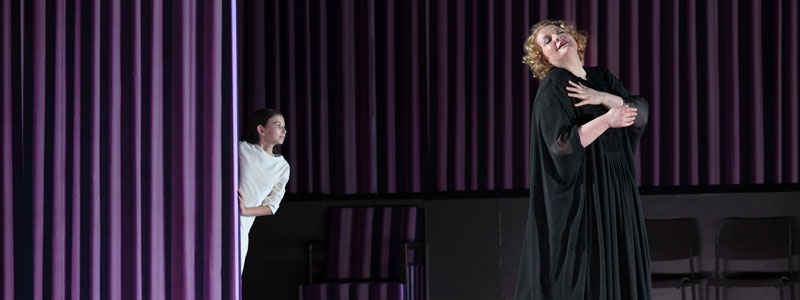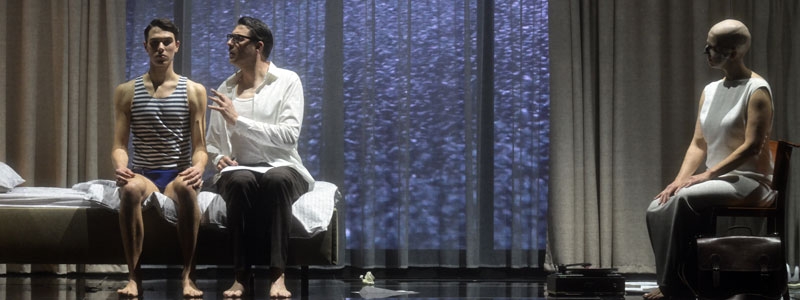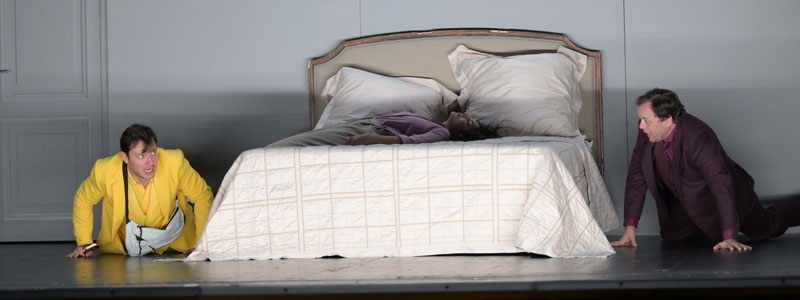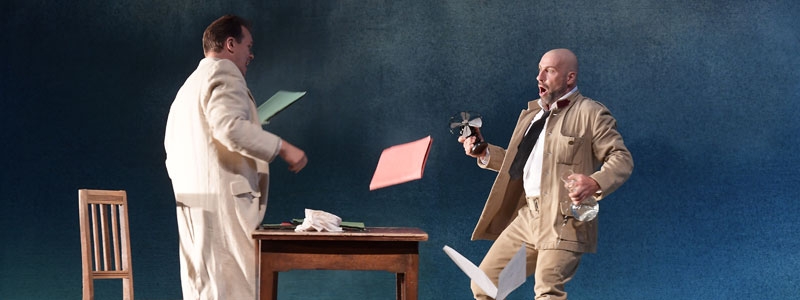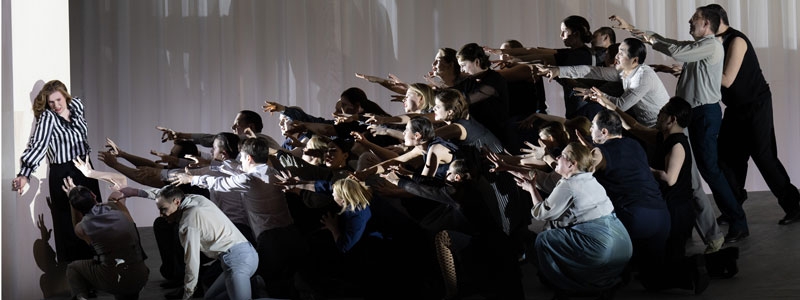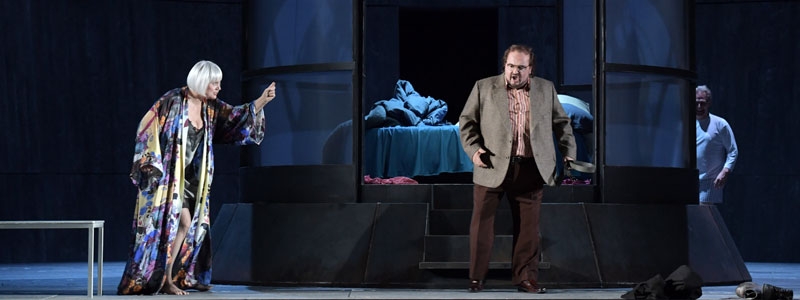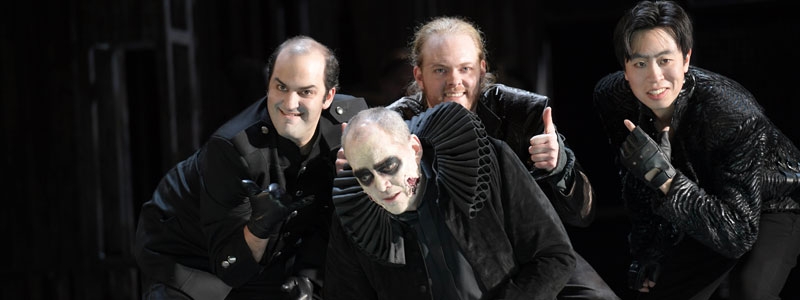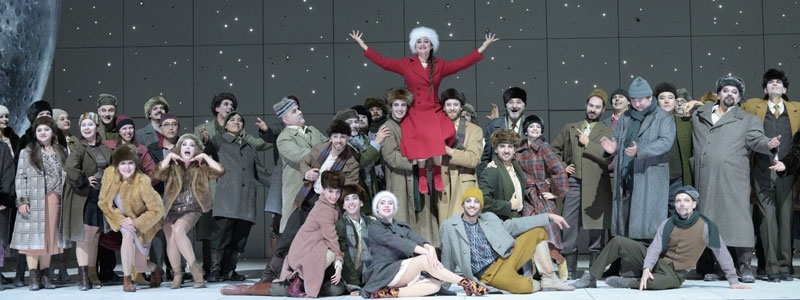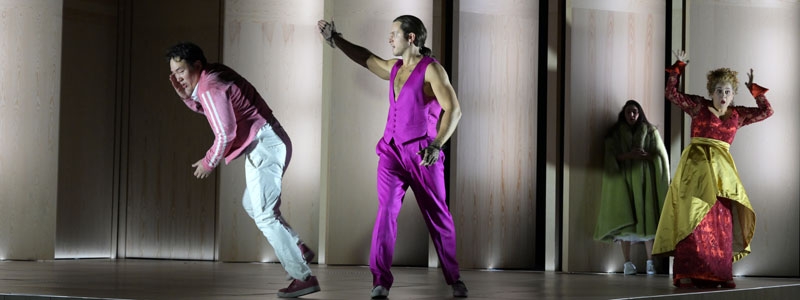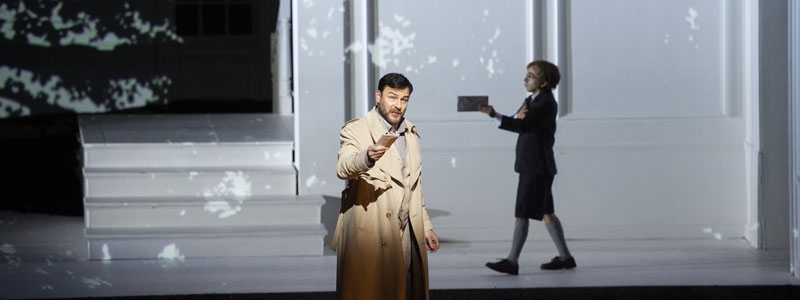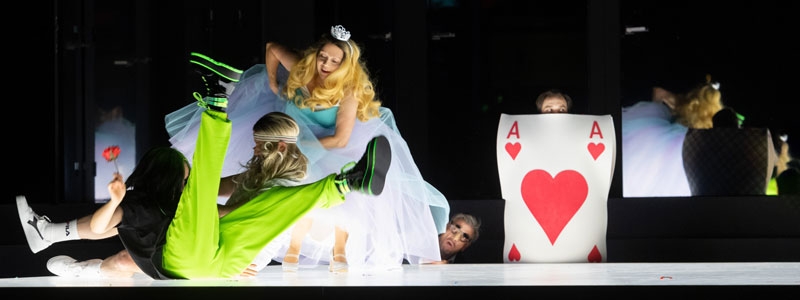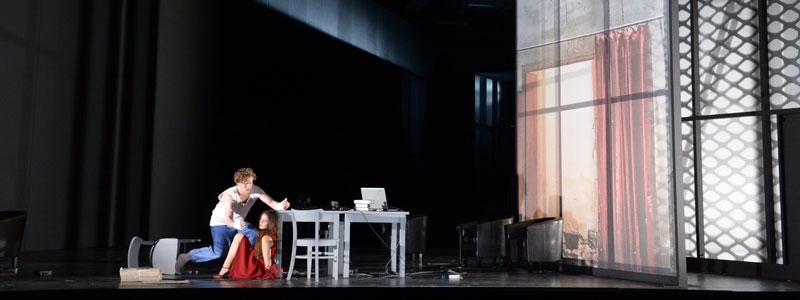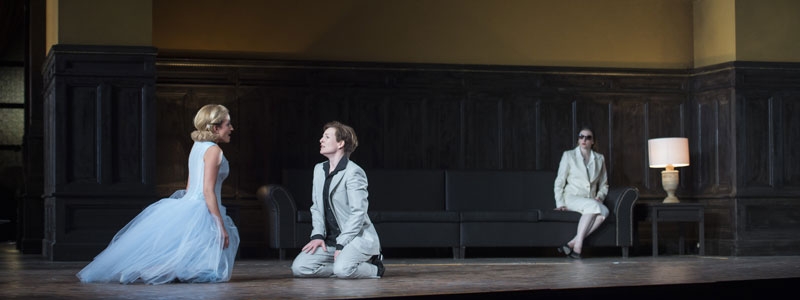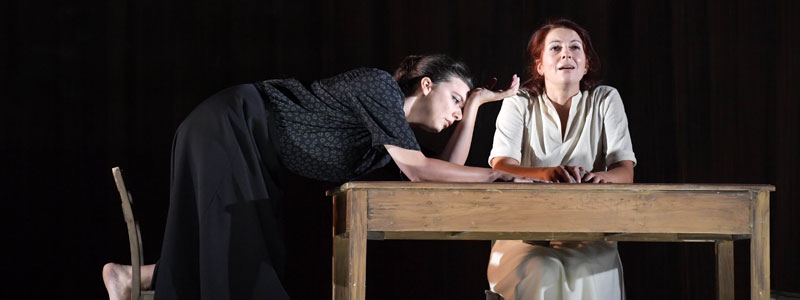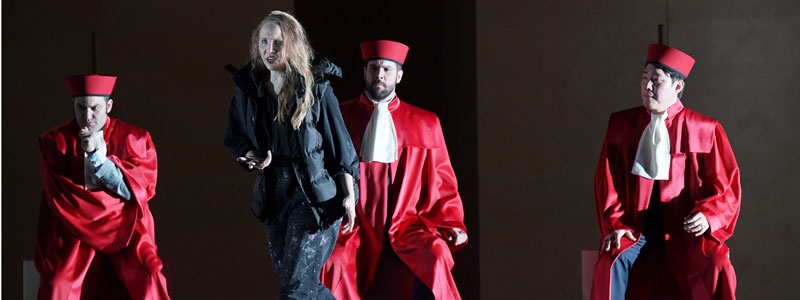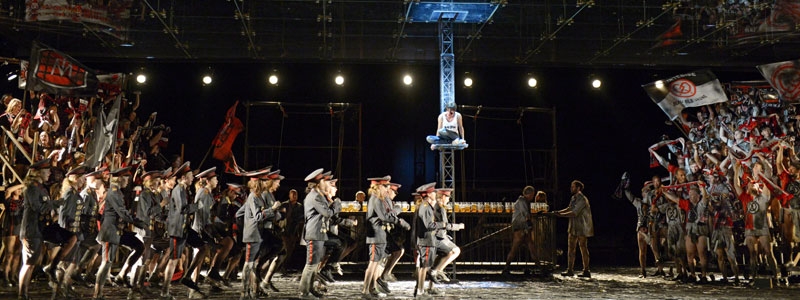From the House of the Dead
Leoš Janáček 1854—1928
Opera in 3 acts
Libretto by the composer based on Fjodor M. Dostoevsky
World premiere April 12 1930, National Theatre, Brno
(2 years after the composer's death)
This production first seen April 1 2018
Sung in Czech with German & English surtitles
Introductory talks (in German) begin in the Holzfoyer 30 mins before curtain up and will appear here shortly before opening night
Act 1 Alexander Petrovič Gorjančikov, a political prisoner, is admitted, tortured and humiliated by the commandant. A fight breaks out between Luka and Skuratov. Luka explains why he was imprisoned: he stabbed a sadistic Major.
Act 2 Gorjančikov wants to teach Aljeja to read and write. Bells proclaim the start of a holiday. Skuratov tells how he shot the man his beloved Luise was forced to marry. The prisoners play a sadistic game with Gorjančikov. Aljeja is wounded by a violent prisoner.
Act 3 Šapkin tells how he was imprisoned and tortured for vagrancy. Šiškov then begins the story of his wife Akulina, Filka Morosow's former lover. He murdered her when he found out that she, a married woman, still loved him. The former rivals recognise one another. The commandant announces, out of the blue, that Gorjančikov has been pardoned. He is released.
Murderers, robbers and traitors live in cramped conditions in a Siberian prison, described in Dostoevsky‘s Notes from a House of the Dead. Can hope, humanity or even compassion for the sentenced men exist in this environment? The key questions in this shattering factual novel were taken up by Leoš Janáček in his opera, focussing on snapshots from Dostoevsky’s work, we’re told the story and emotional state of individual prisoners in four monologues, made even more gripping by the music. It’s held together by the arrest and release of the young journalist Alexandr Petrovič Gorjančikov, who wanders through this purgatory as if he were in Dante’s circles of Hell. David Hermann explores the abysmally dark anger and differentiation in the Czech composer's last score in Johannes Schütz’s uncluttered set, which allows the devasting despair in the work to hit you.


